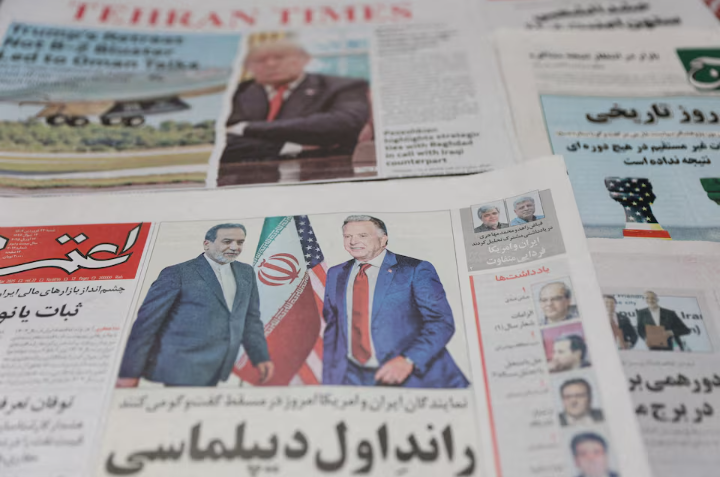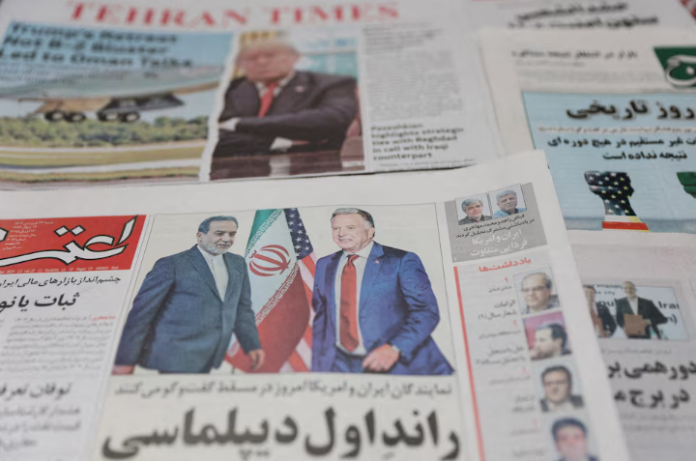As U.S. President Donald Trump gears up for a second round of delicate talks with Iran, hopes are low and stakes are high. After failing to fulfill his bold promises of bringing swift peace to war-torn Gaza and Ukraine, Trump now turns his attention to another geopolitical flashpoint: Iran’s rapidly advancing nuclear program.
Set to meet in Rome this Saturday, negotiators from both the U.S. and Iran are cautiously re-engaging in diplomacy after years of icy hostility. During Trump’s first term, he famously withdrew from the 2015 nuclear deal and imposed harsh sanctions on Tehran—a move that derailed years of international cooperation.
Although last weekend’s meeting in Oman offered a rare glimpse of positivity, experts warn not to expect immediate breakthroughs. Discussions are still in their infancy, with Trump’s advisors reportedly considering a temporary agreement that could lay the groundwork for a more comprehensive deal.
Adding fuel to the fire are Trump’s repeated threats to bomb Iran’s nuclear facilities should negotiations fail. It’s a dangerous ultimatum from a president who once declared himself a “peacemaker” during his inauguration speech in January. Speaking alongside Italian Prime Minister Giorgia Meloni at the White House on Thursday, Trump stressed that diplomacy remains his preferred option—though he made it clear that the alternative wouldn’t favor Iran.
Leading the U.S. side is Steve Witkoff, a personal friend of Trump and a real estate investor with no formal diplomatic experience. Witkoff has already been assigned some of the administration’s most complex foreign policy challenges, including brokering peace in Ukraine and Gaza. Now, Iran is on his plate too.
Witkoff’s direct access to Trump is seen as his biggest asset, potentially offering Iran a rare and valuable channel straight to the president. However, critics fear his lack of expertise could be exploited by Iran’s seasoned Foreign Minister Abbas Araqchi—a shrewd negotiator known for playing hardball.
Despite the efforts, confusion over the U.S. position is deepening. In recent interviews, Witkoff has given mixed signals. He first suggested the U.S. might accept limited uranium enrichment under tight controls, only to later post on X (formerly Twitter) that Iran must eliminate enrichment entirely. Iran, for its part, maintains that enrichment is non-negotiable.
While Trump’s tough sanctions have brought Iran to the table, Tehran remains deeply skeptical. It continues to deny any ambition for nuclear weapons, but has already exceeded the limits imposed under the 2015 agreement, enriching uranium to levels near weapons-grade.

Trump’s diplomatic track record is inconsistent. A brief ceasefire between Israel and Hamas brokered just before his return to office quickly collapsed. Meanwhile, his attempts to broker peace in Ukraine have yielded no results.
Israel, already alarmed by Trump’s pivot to dialogue, is pushing for a Libya-style disarmament deal that Iran is unlikely to accept. Meanwhile, Gulf nations are cautiously optimistic but wary of being sidelined in negotiations that could reshape the region’s future.
Despite the monumental challenges, some analysts believe that reaching a nuclear agreement with Iran might still be more achievable than ending the bloodshed in Ukraine and Gaza.
“In a nuclear deal, the U.S. has direct leverage and defined objectives,” said Laura Blumenfeld of Johns Hopkins University. “Both sides are tired—and ready—to dial down the nuclear tension.”



